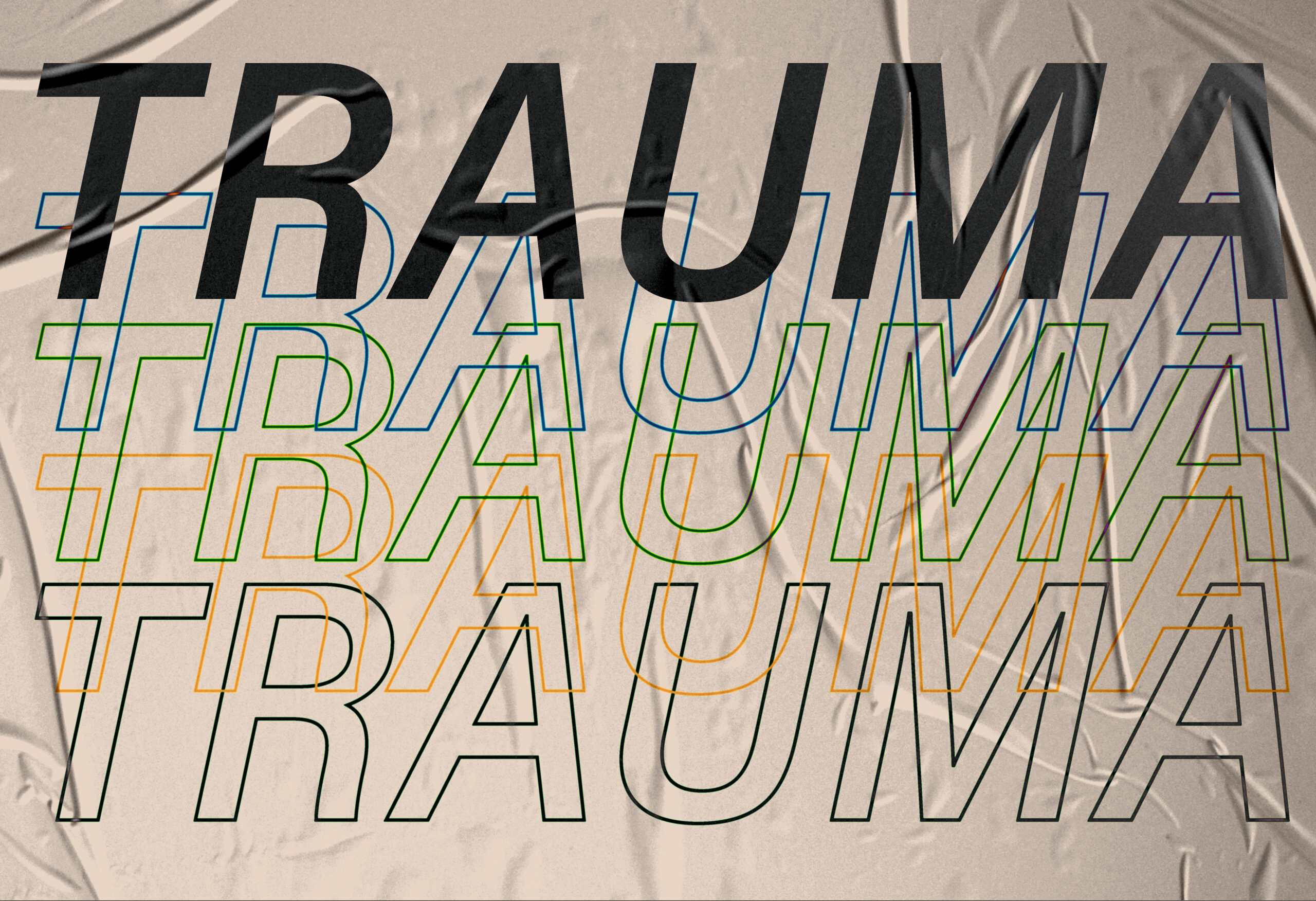Everyone says they have trauma, and honestly, that’s fine

Share your trauma, trigger warnings, trauma-bombing and trauma-bonding. Right now trauma is everywhere and everything is trauma: living in a pandemic, your bad relationship, the death of a pet, your Starbucks that ran cold. At this point, it can be harder to determine what’s not trauma than what is.
There was a time when the word trauma conjured up images of war veterans coming home, victims of horrific violence or applied exclusively to those diagnosed with Post-traumatic Stress Disorder. Now, trauma is a word that most people use to describe every unfortunate incident in their lives.
To make this conversation about trauma a little bit more clear, I’m going to briefly get technical. There are three types of trauma: acute, dealing with a single stressful or dangerous event; chronic, which involves repeated and prolonged exposure to a stressful event or complex, which involves dealing with multiple traumatic events.
Oftentimes, the confusion over trauma comes from misunderstanding that it is an umbrella term, encompassing a multitude of situations, and more importantly, it is often personally defined.
We can’t control how and why people use certain words, but we can control our ability to empathize with others.
Individuals, especially those who are clinically diagnosed with PTSD or who have been exposed to chronic or complex trauma, might begrudge the very casual use of the word. Those who have experienced unimaginable circumstances or intense pain may not appreciate the appropriation of the word by TikTok creators.
However, the most important thing here is that pain is relative. There should be no hierarchy of pain — of whose pain is worse and therefore whose experience is the most real.
Contrary to popular belief, it is not the common use of the word trauma that is invalidating the experiences of ‘true’ trauma, but the insistence that there are right and wrong uses that make trauma survivors turn on each other rather than lift one another up.
There is a growing consensus among psychologists that the overuse of the word trauma could be contributing to a sense of helplessness in the face of difficult situations or that it makes it so trauma becomes an integral part of our personal identity.
While I think we should all be cognizant of the possible effects, these are issues that deserve to be addressed with a therapist or psychologist, not factors that should contribute to whether or not we give someone a hard time for saying they experience trauma.
At a societal level, the argument is that if we encourage the compartmentalization of every unpleasant experience as trauma, we will lose the ability to overcome and contextualize events that are traumatic from those that are merely unpleasant.
Honestly though, I’m not too worried about this effect. People are already capable of exaggerating or painting situations based on their attitudes and the cultural landscape they live in.
Between the conversation on trauma, the Black Lives Matter movement, the MeToo movement, campaigns to protect trans lives and experiences, calls for more inclusive education and visibility and so much more, we are witnesses to an age where giving voice to the pain we may have suffered is power.
I know people who can make a car crash sound like a mild experience and others who act like a phone call is an experience akin to dying. There are people in this country that thought an anti-parasitic meant for cows could prevent their exposure to a virus. If people want to take a leap of faith and say that another person’s trauma is real, there are clearly worse things to believe in.
We can’t control how and why people use certain words, but we can control our ability to empathize with others.
Of course, it’s important that we be considerate of the fact that some people are abusing the idea of trauma. Individuals who may have more privilege than others may see the power and strength that comes in sharing stories and try to monopolize that for their own purposes. They may be witnessing a conversation that, for the first time, doesn’t center their voices and feel the need to do just that.
There are others too who play into the argument, who feel the need to always show that their experience deserves all the air in the room. You couldn’t possibly understand the depths of them. But that goes for everyone. We will never fully know another person’s story.
I’m going to put a disclaimer in here, not because I think it should be relevant, but because I worry there will be people who will say, “Delaney, who are you to say this? How can you speak on behalf of people with PTSD and trauma diagnoses?”
And of course you can’t speak on behalf of people (that’s kind of the whole point I’m trying to make), but I will say that I have the diagnoses, I’ve experienced what some think of as the big bads associated with trauma and I still think it’s fine!
We lay-people don’t get to be an authority on whether something is hard. We shouldn’t lose faith in everyone because a few people are capitalizing on this social moment.
You can get mad and feel like you’re being invalidated by what you consider to be non-traumatic experiences, or you can just choose to believe people and trust that for them, that was an incredibly hard moment. Compassion is usually easier than cynicism and frustration.
Between the conversation on trauma, the Black Lives Matter movement, the MeToo movement, campaigns to protect trans lives and experiences, calls for more inclusive education and visibility and so much more, we are witnesses to an age where giving voice to the pain we may have suffered is power.
If the conversations about trauma are encouraging, compassionate and self-aware, I can only see them as a good thing.
